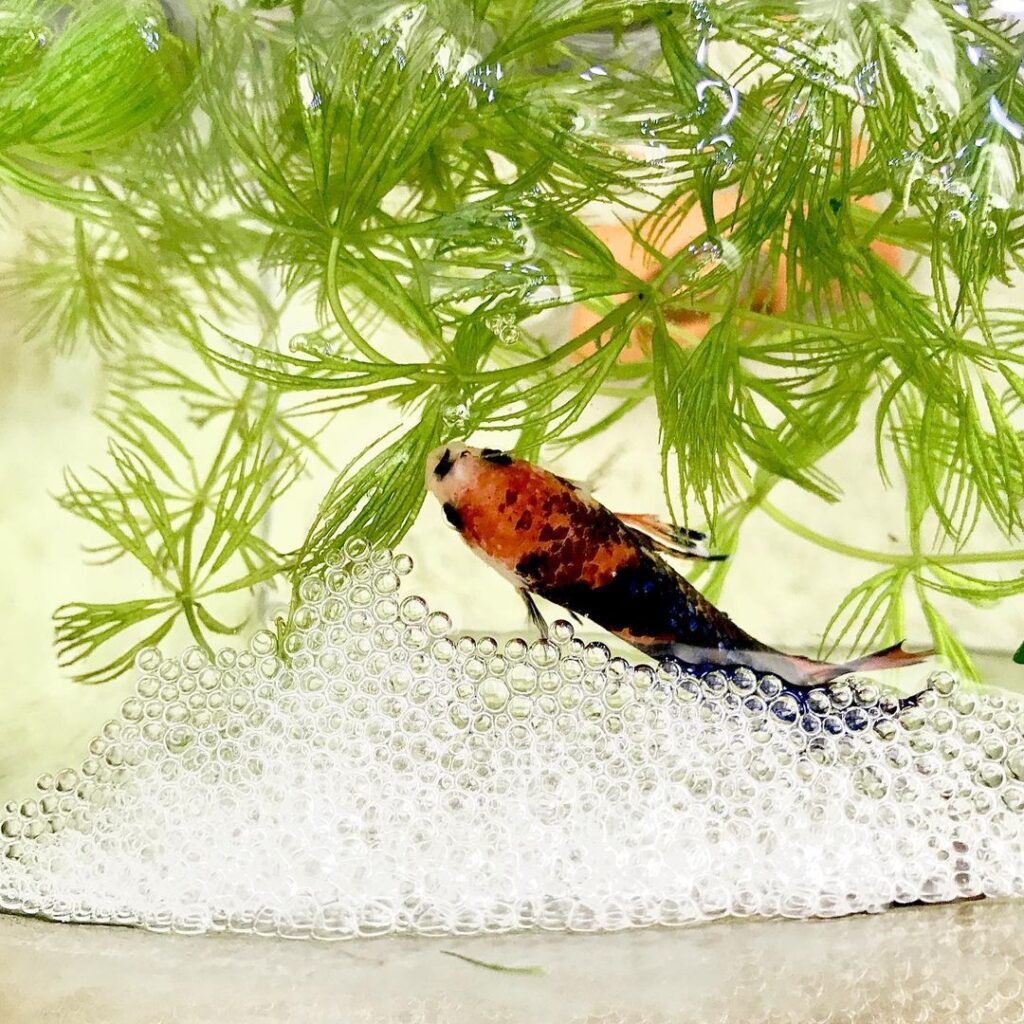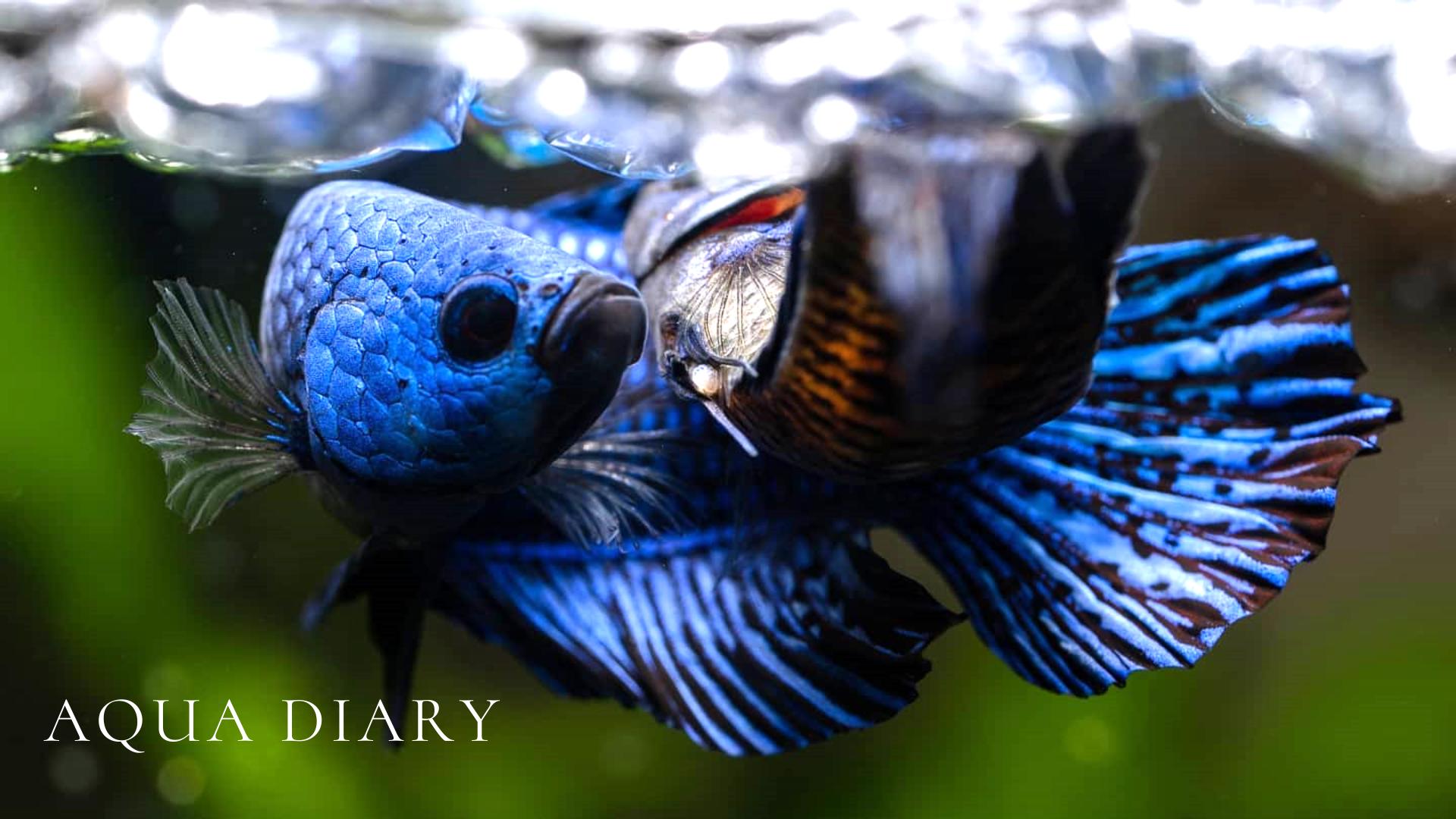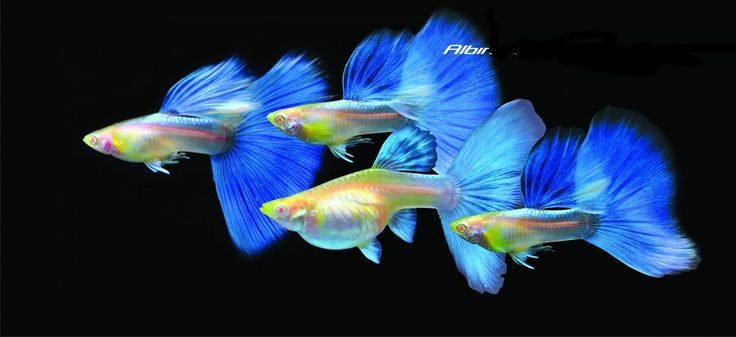Today, we’re going to look at the topic of betta fish breeding, specifically talking more about taking care of betta fish eggs. We’ll discuss how to determine if eggs are fertilized, egg-laying frequency, tank conditions for successful hatching, and more interesting details about hatching techniques.
1. How To Tell If Betta Eggs Are Fertilized?
Fertilized eggs will become yellowish or brownish with a few gray spots. The size of fertilized eggs grows slightly over time. You can also see through the eggs, spotting the tiny fry and their yolk sack inside. You will see two black dots in the egg, which are the eyes of the fry. The male betta plays a crucial role in caring for eggs. He carries them to a bubble nest at the water’s surface. Look for white spots among the bubbles, as there might be eggs appearing in the bubbles. The male betta protects fertilized eggs. Usually, eggs hatch within three days. If an egg hasn’t hatched after three days, it is likely unfertilized.
2. How Many Eggs Do Betta Fish Lay? – Taking Care of Betta Fish Eggs
Female Betta fish typically produce 30 to 40 eggs per week. So Betta fish can lay varying numbers of eggs, depending on individual breeding periods and other tank factors. Based on my experience, a female betta fish can lay 70 to 300 eggs during a single spawning event. The actual number can be influenced by factors such as the female’s age, health, water conditions, and breeding conditions.
3. Can Betta eggs hatch without bubble nests?
Betta eggs can hatch without a bubble nest. Building a bubble nest to protect the eggs, is not necessary for successful hatching. The bubble nest helps the male keep the eggs close together. It helps the fry get better oxygen and provides a safe environment. It is still possible for betta eggs to hatch without a bubble nest, but the spawning rate will be low. The male betta’s role in caring for the eggs and the overall conditions of the water and environment play important roles in the successful hatching and survival of the eggs.

4. How many eggs are expected to hatch? – Taking Care of Betta Fish Eggs
In general, 70 percent of eggs hatch in a healthy breeding environment. The hatching rate decreases as the number of eggs increases. This is because it becomes more challenging for a male betta to care for a large quantity of eggs at once. If your betta fish lays a moderate number of eggs, such as 40, you can anticipate approximately 25-30 fry after three days in the healthy breeding tank. This is provided that you have created a suitable environment and taken the necessary measures for their well-being.
5. Can betta eggs hatch without a male? – Taking Care of Betta Fish Eggs
Betta fish eggs cannot hatch without a male. But, female Bettas can lay eggs without a male, especially when they are fully loaded with eggs. The female Betta can release itself, but eggs become unfertilized without the male. Fertilization occurs when the male betta secretes sperm to fertilize the eggs. Without male sperm, eggs cannot be fertilized or hatched. Unfertilized eggs will eventually spoil or be consumed by the female betta itself or other fish in your tank.
6. How long does it take for betta babies to grow?
Betta babies take approximately 4 to 5 months to reach full maturity. Their fins are fully developed at this stage, and their color will be vibrant and shining. And it is at this stage that the Betta is ready to breed as well. But betta eggs start no bigger than 0.03 inches in diameter. In just 10 weeks, these babies can grow up to 1.5 inches long. At around five months, the Betta reaches full size with fully functioning scales and fins. The size and growth rate of bettas vary according to their genetics and tank conditions.


7. How do male betta fish fertilize eggs?
Male betta fish fertilize the eggs by releasing milt into the water. This is the most crucial aspect of betta fish mating. In the absence of a male betta, the female can still produce eggs, but the eggs will die and rot. They cannot hatch unless a male betta fertilizes them. For a successful breeding setup, the male must embrace the female, release eggs into the bubble nest, and release milt in order to fertilize it.
8. What should I do if the eggs don’t hatch?
As was previously mentioned, if your betta fish’s eggs don’t hatch after three days, they are most likely unfertile. So, you should intervene before rotten eggs ruin the water quality. If you see no changes in the eggs after 72 hours, you should take them out. You have to do that even if it disturbs your betta’s bubble nest. Since rotten eggs produce ammonia and nitrates, they lower the pH and make it difficult for your betta fish to breathe. In general, male betta fish in your breeding tank know the risk of rotten eggs. Males usually eat rotten eggs that do not have any signs of fertilization to save other healthy eggs.
Ammonia and nitrite should be kept at 0 ppm while nitrates should be below 20 ppm. The pH should range between 7.0 and 7.2. To do that, I personally use the API Test Kit. Product link in the description and pinned comments if you like to check it out.
9. What Happens to Pregnant Females Without a Male?
Female bettas usually wait for a viable mate before releasing their eggs. However, if there are no male betta present in the tank, sometimes they will re-absorb the eggs. It is common for betta to do this when they live in tanks that are exclusively for females. There have been instances where female bettas lay eggs without the male in the tank. Many breeders and betta keepers have witnessed this in their tanks. But female bettas usually eat their own eggs immediately after release. This is one reason why many people assume that female bettas cannot lay eggs without male fish.
10. How frequently do Betta Lay Eggs? – Taking Care of Betta Fish Eggs
Female betta fish lay eggs regularly, and egg-laying frequency can vary depending on various factors. Bettas usually lay eggs every few weeks. The exact timing of egg-laying can be influenced by factors such as the age, health, and reproductive maturity of the female betta, as well as environmental conditions and the presence of a male betta for mating. It’s important to note that egg-laying frequency can also be affected by betta breeders’ breeding and conditioning practices.
11. What tank conditions determine successful hatching?
An ideal water quality is crucial for betta eggs to hatch. It is essential to maintain clean water and ensure that pH and ammonia levels are within appropriate ranges. Temperature directly influences betta egg hatching rates. Higher temperatures generally result in faster hatching. The optimal temperature range for betta eggs is 79 to 82 degrees Fahrenheit. It usually takes about two to three days for betta frys to hatch.





